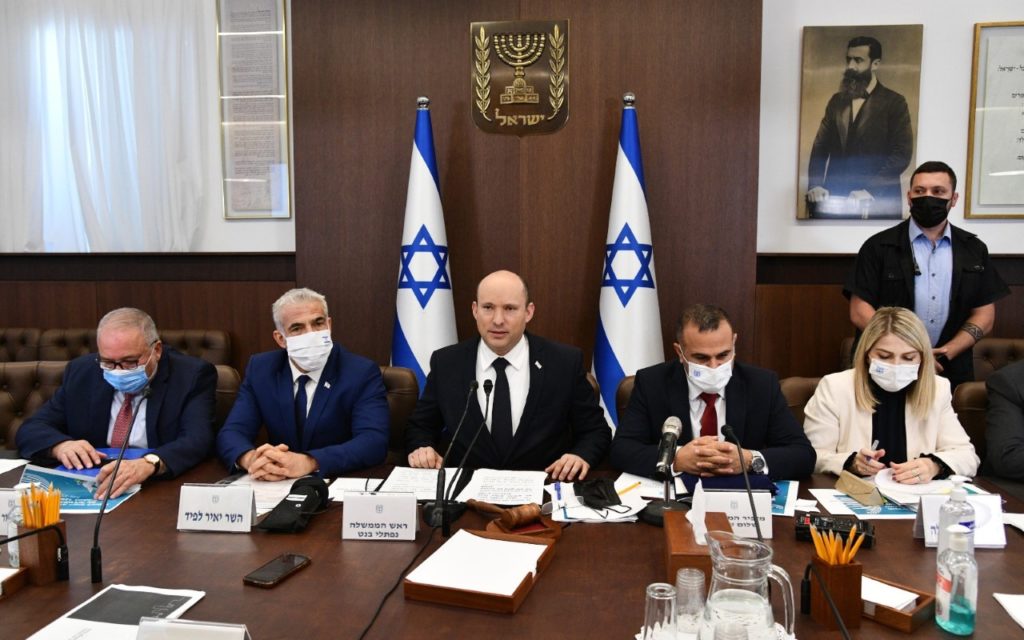The Israeli government’s decision on Friday to outlaw six Palestinian civil society organisations operating in the West Bank has caused consternation in the US and EU and been condemned by human rights organisations as an attempt to silence civilian advocacy and peaceful protest against the occupation.
The NGOs were declared as terrorist organisations because of their alleged links to the Popular Front for the Liberation of Palestine (PFLP), a less known group active in the past which is designated as a terrorist group by both Israel and EU.
Members of the NGOs are accused of transferring funding to the group or being themselves affiliated to the group or in one case even being involved in a terror attack in 2019. In particular, Israel claims that the money the NGOs are receiving from European countries are transferred to PFLP to recruit new members and pay their salaries, including assistance to convicted prisoners and their families.
According to NGO Monitor, an Israeli NGO which is carrying out research about the funding, the EU alone approved grants of at least €38 million during 2011 – 2019 to NGOs allegedly linked to PFLP.
"The NGO industry is very powerful in the EU and the individual governments,” NGO Monitor President Professor Gerald Steinberg told The Brussels Times. “Officials have ignored or dismissed the publicly available evidence of terror connections involving their most important Palestinian cooperation partners.”
However, the official Israeli terror designation will make this more difficult and the details will receive serious attention for the first time, as tens of millions of Euros are budgeted every year to these NGOs under the labels of human rights and humanitarian aid, he added.
Judging by the reports in media, the NGOs are involved in peaceful activities not to Israel’s likening, such as lobbying for anti-Israeli resolutions in the UN Human Rights Council and International Criminal Court. Recently, some of them also lobbied for the failed attempt to block US funding for Israel’s Iron Dome missile defense system.
Domestically, one organization compiles reports on human rights violations in the occupied territories by both Israel and the Palestinian Authority. Another one offers legal aid to Palestinians in Israeli prisons. A third one focuses on aid to children caught up in Israeli courts. The other ones say that they support farmers, fight poverty and empower women in Palestinian society.
The Israeli decision was taken by Defence Minister Benny Gantz but coordinated with other ministries, including the minister of foreign affairs, and is based on classified intelligence information. Following complaints by the US state department about lack of communication about the decision, representatives of Israeli security service will fly to Washington to present the evidence.
EU response
The EU has not yet issued any statement but EU members states that have been funding the Palestinian NGOs have questioned the decision and requested explanations. According to the Israeli foreign ministry, the information has been shared with a few countries in Europe, including the EU.
“We have noticed the decision by the Israeli defence ministry,” said Peter Stano, EU Lead Spokesperson for Foreign Affairs and Security Policy, at the press conference in Brussels yesterday (25 October). “Two of them are receiving EU funding. We take the allegations very seriously and will look into them. We are in touch with our Israeli partners to seek clarifications.”
According to the spokesperson, similar allegations of misuse of funding in the past were found unsubstantiated. EU’s funding of Palestinian civil society is an important element in EU’s support to the two-state solution. He underlined that civil society has a role to play in promoting international law, human rights and democratic values in society.
NGO Monitor has disclosed a legal analysis of the funding to Palestinian NGOs drafted in 2020 by European Legal Support Center (ELSC) in Amsterdam, an NGO which defends and empowers advocates for Palestinian rights.
According to the document or memo, a qualified majority of the European Council, based on a proposal by the High Representative of the EU for Foreign Affairs and Security Policy, can decide on restrictive measures against NGOs linked to terrorism.
In this case, however, it is unlikely because of the stringent requirements on evidence. Furthermore, the restrictive measures imposed by EU target organisations and not individual persons who might have been implicated in illegal transfer of funding.
Asked whether this could be considered a loophole in EU rules, the spokesperson declined to comment. “We are not aware of any relation between the European Legal Support Office (ELSC) and the Commission or the European External Action Service (EEAS)," he said. "In this sense, we confirm that the ELSC memo was never requested by these EU institutions.”
Civil society organisations or the voluntary sector are needed in every country as a third sector between public authorities and business companies but to thrive they need an enabling environment and independent funding based on membership fees, conditions that are not in place in the West Bank.
M. Apelblat
The Brussels Times

